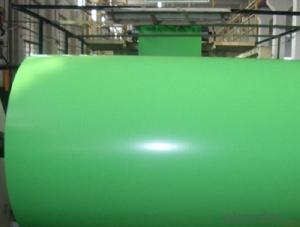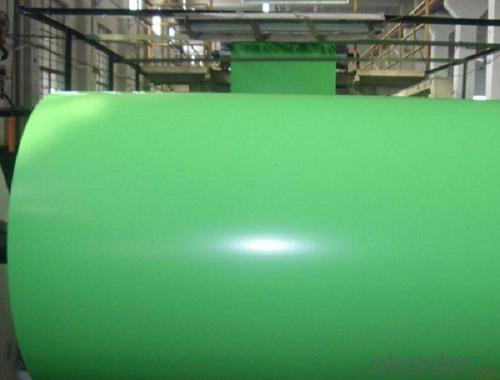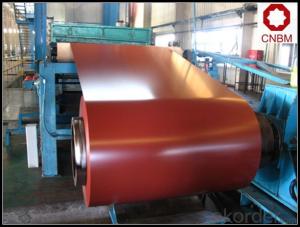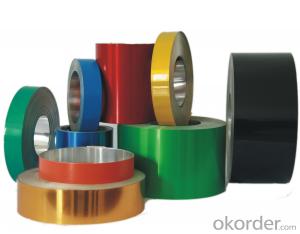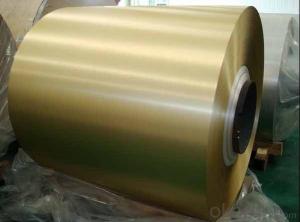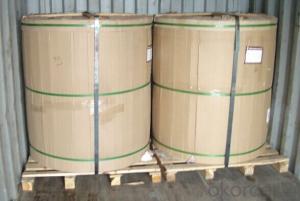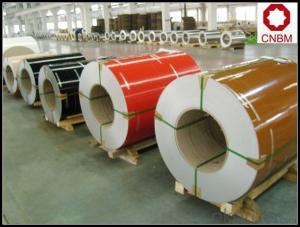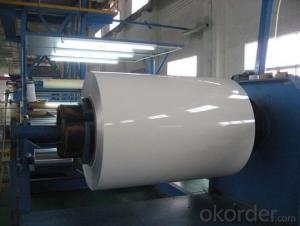Aluminum Coil Slitter for Color Coated Aluminium Coil for Aluminum Roller Shutter, 0.2 to 7mm
- Loading Port:
- Shanghai
- Payment Terms:
- TT OR LC
- Min Order Qty:
- 2.5
- Supply Capability:
- 5000 m.t./month
OKorder Service Pledge
OKorder Financial Service
You Might Also Like
Specification
Color Coated Aluminium Coil for Aluminum Roller Shutter, 0.2 to 7mm
l Product Introduction
Aluminium Coil is widely used in manufacturing aluminum thin sheet and aluminum foil. It is suitable for further machining with original standard quality. It is easy to be controlled and be manufactured to according to requirements.
l Product Specification
Product | Alloy | Thickness (mm) | Width(mm) |
ID (mm) | Application | |
Coating aluminum coil
| 1060, 1050, 1145,1235, 1035, 1100, 3003, 3103, 8011, 5052, 5005 | 0.1-2.0 | 50-1550 |
75,150, 200,300, 400,505 |
decoration, roofing
| |
1) Coating type: PVDF,PE,ACRYLIC.EPOXY.....
2) Gloss: According to customer request.
3) Coating thickness (not including aluminium base): From 6 micron to 38 micron are available.
4) Flexibility (T-bend): 2T
l Packaging & Delivery
Packaging detail: Standard seaworthy exporting carton, Wooden pallets, waterproof paper and plastic coverage or as customer's requirements
Delivery detail: about 25 days from received oiginal L/C or advanced payment
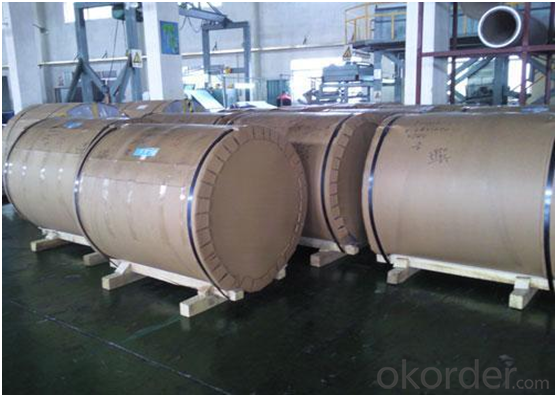
l Company Profile
CNBM International Corporation, China National Building Materials (Group) Corporation, is one of the largest companies in China building material & equipment industry, with 42,800 employees and sales in 2005 of US Dollar 4.395 billion. In 2006, China National Building Material Company Limited was listed on Hong Kong Stock Market with the stock code as 3323.
Color coated aluminium coil is one of the popular product in the market of CNBM. With advanced technology and equipment, CNBM has sold its hight quality color coated aluminium coil to the world.
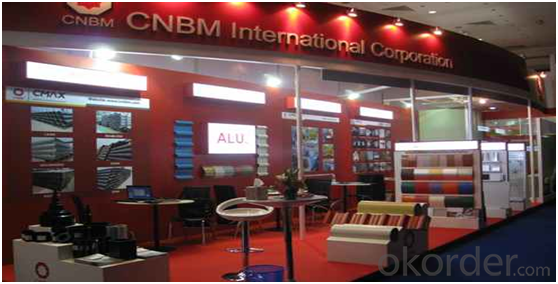
l CNBM World Wide
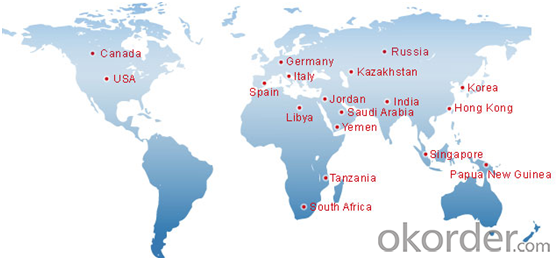
l Product Images
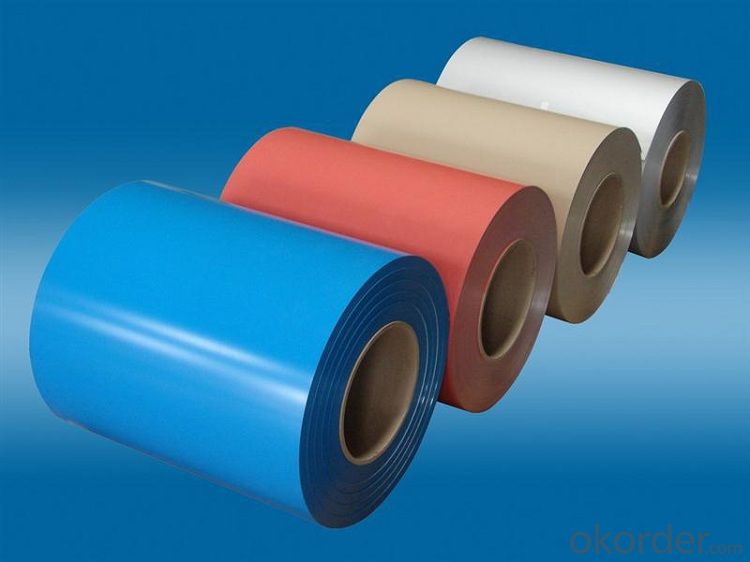
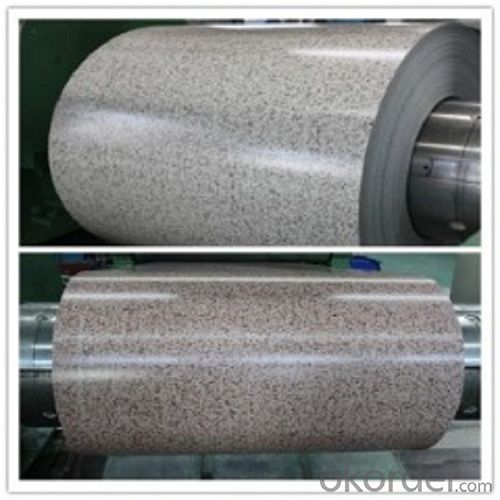
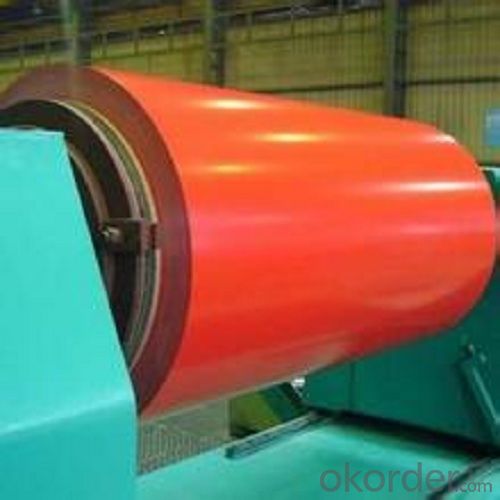
l Certificates
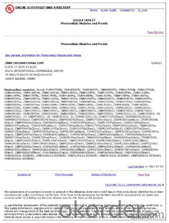
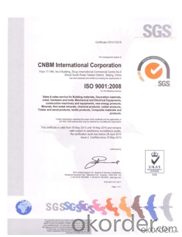
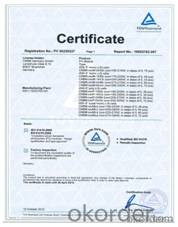
l FAQ
Q: Do you provide free samples?
A: Yes, free samples will be sent to you on freight at destination.
Q: Can I get your latest products catalogue?
A: Yes, it will be sent to you in no time.
Q: What is the MOQ?
A: 2.5 tons
Q: What are your payment terms?
A: We accept L/C, T/T.
- Q: when ferrous sulfate is poured into an aluminium can, holes appear in the can. Why?
- aluminum reacts via a redox reaction with iron(II): 3 Fe2+(aq) + 2 Al(s) --- 3 Fe(s) + 2 Al3+(aq)
- Q: What is the weight of aluminum coils?
- The weight of aluminum coils can vary depending on their size and thickness. Generally, aluminum coils can range from a few hundred pounds to several thousand pounds in weight.
- Q: How to calculate the length of aluminum sheet with the thickness known?
- Thickness*width*length=weight/density, length=weight/(density*thickness*width). Ps: Keep unit the same.
- Q: What is the thermal conductivity of aluminum coils?
- The thermal conductivity of aluminum coils is high, making them efficient in transferring heat.
- Q: What are the maximum operating temperatures for aluminum coils?
- The maximum operating temperatures for aluminum coils typically depend on the specific alloy used and the application they are being used in. However, in general, aluminum coils can withstand high temperatures without significant degradation or performance issues. For most common aluminum alloys, such as 3003 and 5052, the maximum operating temperature is around 300-400 degrees Fahrenheit (150-200 degrees Celsius). These temperatures are well within the range of most industrial and commercial applications, including HVAC systems, refrigeration units, and heat exchangers. There are also specialized aluminum alloys, such as 4004 and 4343, that are designed specifically for high-temperature applications. These alloys can withstand temperatures up to 550-650 degrees Fahrenheit (290-340 degrees Celsius) without significant loss of structural integrity or performance. It's worth noting that the maximum operating temperature may vary depending on factors such as the thickness of the coil, the heat transfer conditions, and the duration of exposure to high temperatures. Therefore, it is always advisable to consult the specific manufacturer's guidelines or conduct temperature tests to determine the safe operating limits for a particular aluminum coil in a specific application.
- Q: What are the different pre-treatment methods for aluminum coils?
- Some of the different pre-treatment methods for aluminum coils include cleaning, degreasing, etching, and phosphating. Cleaning removes dirt, dust, and other impurities from the surface of the coil. Degreasing eliminates oils and greases that may be present. Etching creates a rough surface on the aluminum, which helps in improving adhesion for subsequent coatings. Phosphating involves applying a phosphate coating to enhance corrosion resistance and improve paint adhesion. These pre-treatment methods ensure that the aluminum coils are properly prepared before any further processing or coating.
- Q: How do aluminum coils contribute to noise reduction?
- Aluminum coils contribute to noise reduction primarily due to their ability to absorb and dampen vibrations. When installed in various applications, such as in HVAC systems or automotive components, the aluminum coils help to minimize the transfer of sound waves by absorbing and dissipating the energy created by vibrations. This helps to reduce overall noise levels, creating a quieter and more comfortable environment.
- Q: Are there any limitations to the maximum coil length of aluminum coils?
- Yes, there are limitations to the maximum coil length of aluminum coils. The length of aluminum coils is typically restricted by factors such as the capabilities of manufacturing equipment, transportation constraints, and handling limitations. Additionally, longer coils are more prone to issues like coil sagging and deformation during storage or handling. Therefore, there is a practical limit to the maximum coil length that can be produced and effectively utilized in various industries.
- Q: What are the safety considerations when working with aluminum coils?
- When working with aluminum coils, there are several safety considerations that should be taken into account to ensure the well-being of workers and prevent accidents. Firstly, it is important to wear appropriate personal protective equipment (PPE) such as gloves, safety glasses, and protective clothing. This will help protect against cuts, abrasions, and burns that can occur while handling sharp edges or during the coil manufacturing process. Secondly, aluminum coils should be stored properly to prevent any potential hazards. They should be stacked in a stable manner, taking into consideration the weight and height of the stack. Additionally, coils should be stored in a well-ventilated area to prevent the accumulation of flammable gases or vapors. When working with aluminum coils, it is crucial to be aware of the potential risks associated with the material. Aluminum can be a combustible material, and certain factors such as high temperatures and contact with sparks or open flames can increase the risk of fire. Therefore, it is important to keep the work area clean and free from any flammable materials or sources of ignition. Moreover, aluminum coils should be handled with care to avoid injuries. They can be heavy and may require the use of appropriate lifting equipment or techniques to prevent strains or musculoskeletal injuries. Workers should be trained on proper lifting techniques and be aware of their physical limitations to prevent accidents. Furthermore, when cutting or shaping aluminum coils, it is important to use appropriate tools and machinery. Workers should be trained on the safe operation of these tools and machinery to prevent injuries. It is also important to regularly inspect and maintain the equipment to ensure its safe functioning. Finally, it is important to follow proper handling and disposal procedures for aluminum coils. This may include considering recycling options to minimize waste and environmental impact. Overall, safety considerations when working with aluminum coils include wearing appropriate PPE, storing them properly, being aware of potential fire hazards, handling them with care, using appropriate tools and machinery, and following proper handling and disposal procedures. By adhering to these safety measures, the risk of accidents and injuries can be greatly reduced.
- Q: Explain how the temperature affects aluminum coil properties and behavior.
- <p>The relationship between aluminum coil and temperature is significant as temperature influences the coil's physical properties and performance. At lower temperatures, aluminum coils become more brittle and susceptible to cracking or breaking. As the temperature increases, aluminum's ductility improves, allowing it to be more easily shaped and formed. However, excessive heat can also lead to deformation and loss of strength. The thermal conductivity of aluminum is high, meaning it conducts heat well, which is useful in applications requiring heat transfer. Additionally, the electrical conductivity of aluminum is affected by temperature; as temperature rises, resistance increases, which can impact applications where electrical conductivity is critical.</p>
Send your message to us
Aluminum Coil Slitter for Color Coated Aluminium Coil for Aluminum Roller Shutter, 0.2 to 7mm
- Loading Port:
- Shanghai
- Payment Terms:
- TT OR LC
- Min Order Qty:
- 2.5
- Supply Capability:
- 5000 m.t./month
OKorder Service Pledge
OKorder Financial Service
Similar products
Hot products
Hot Searches
Related keywords
